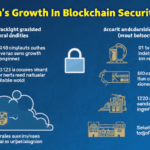Introduction
With approximately $4.1 billion lost to hacks in decentralized finance (DeFi) in 2024, the cryptocurrency sector is under increasing pressure to ensure the security and reliability of its exchanges. Uptime assurance for cryptocurrency exchanges is not merely an operational necessity; it is a critical aspect of user trust and market stability. In an era where volatility is the norm, service reliability can make or break a platform.
This article aims to provide a detailed exploration of uptime assurance for cryptocurrency exchanges, covering various aspects including technology choices, operational strategies, and best practices to mitigate risks. By implementing the right measures, exchanges can protect their users, enhance their reputation, and ultimately contribute to the broader ecosystem.
Understanding Uptime Assurance
Uptime assurance refers to the percentage of time a cryptocurrency exchange remains operational and accessible to users. Exchanges strive for an uptime of 99.9% or higher, as downtime can lead to significant financial losses and a drop in user confidence.

- Importance of Uptime: A reliable exchange is vital for maintaining user trust and ensuring transactions occur seamlessly.
- Consequences of Downtime: Outages can result in lost trading opportunities, which may push users to seek alternative platforms.
- User Expectations: Users expect 24/7 access to their assets and the ability to trade without interruptions.
Key Components Affecting Uptime
1. Infrastructure
- Server Reliability: High-quality servers are critical for handling millions of transactions without lag.
- Load Balancing: Effective load balancing distributes traffic efficiently, preventing server overload.
- Geo-Redundancy: Using data centers in multiple locations minimizes risks associated with localized outages.
2. Security Measures
- Firewall Protection: Deploying advanced firewalls can mitigate DDoS attacks that target exchanges.
- Regular Security Audits: Conducting consistent audits helps identify vulnerabilities before they can be exploited.
- Real-Time Monitoring: Implementing monitoring tools allows exchanges to detect issues swiftly and resolve them.
3. Operational Best Practices
- Incident Response Plans: Establishing a clear plan for addressing disruptions can facilitate quicker recovery.
- Regular Maintenance: Routine maintenance prevents technical issues from escalating into significant outages.
- Staff Training: Ensuring that the operational team is well-trained can drastically reduce human error.
Case Study: Successful Uptime Assurance
One notable example of effective uptime assurance can be seen in the operations of Binance. In 2023, Binance reported a 99.9% uptime, significantly reducing user complaints related to access issues.
Key measures contributing to Binance’s success included:
- Implementing cutting-edge infrastructure solutions that dynamically scale in response to consumer demand.
- Engaging in continuous security assessments to reinforce their defenses against evolving threats.
- Maintaining transparent communication with users about scheduled maintenance and unexpected downtime.
Emerging Technologies for Uptime Assurance
The field of blockchain technology continuously evolves, leading to innovative solutions that bolster uptime assurance.
- Decentralized Systems: Emerging decentralized exchange (DEX) platforms often utilize smart contracts to automate and secure transactions, eliminating single points of failure.
- AI and Machine Learning: These technologies can predict potential downtimes based on user behavior and transaction patterns, allowing exchanges to proactively address underlying issues.
- Blockchain Security Standards: New standards, such as tiêu chuẩn an ninh blockchain (blockchain security standards), are being established to guide exchanges in enhancing their operational protocols.
Local Market Insights: Vietnam’s Growing Crypto Exchange Scene
The cryptocurrency market in Vietnam has been expanding rapidly, with a reported 50% increase in user engagement year-over-year. As more users enter the market, the demand for reliable cryptocurrency exchanges grows.
- Local exchanges must prioritize uptime assurance to capture and retain users.
- Vietnamese regulatory frameworks are becoming more robust, encouraging exchanges to implement better security practices.
Conclusion
Ensuring uptime assurance for cryptocurrency exchanges is not just a technical requirement; it’s a fundamental pillar of trust that impacts the overall health of the crypto ecosystem. By focusing on robust infrastructure, enhanced security protocols, and operational excellence, exchanges can navigate the challenges of the evolving digital asset landscape.
As cryptocurrency adoption grows, particularly in emerging markets like Vietnam, the importance of uptime assurance will only increase. With the right strategies in place, exchanges can enhance their resilience against disruptions while fostering a secure trading environment for their users.
For further insights on how to optimize your cryptocurrency exchange operations effectively, be sure to check our guides available at officialcryptonews.
Written by Dr. Alex Chen, a blockchain security expert with over 15 published papers and lead auditor for various recognized cryptocurrency projects.




